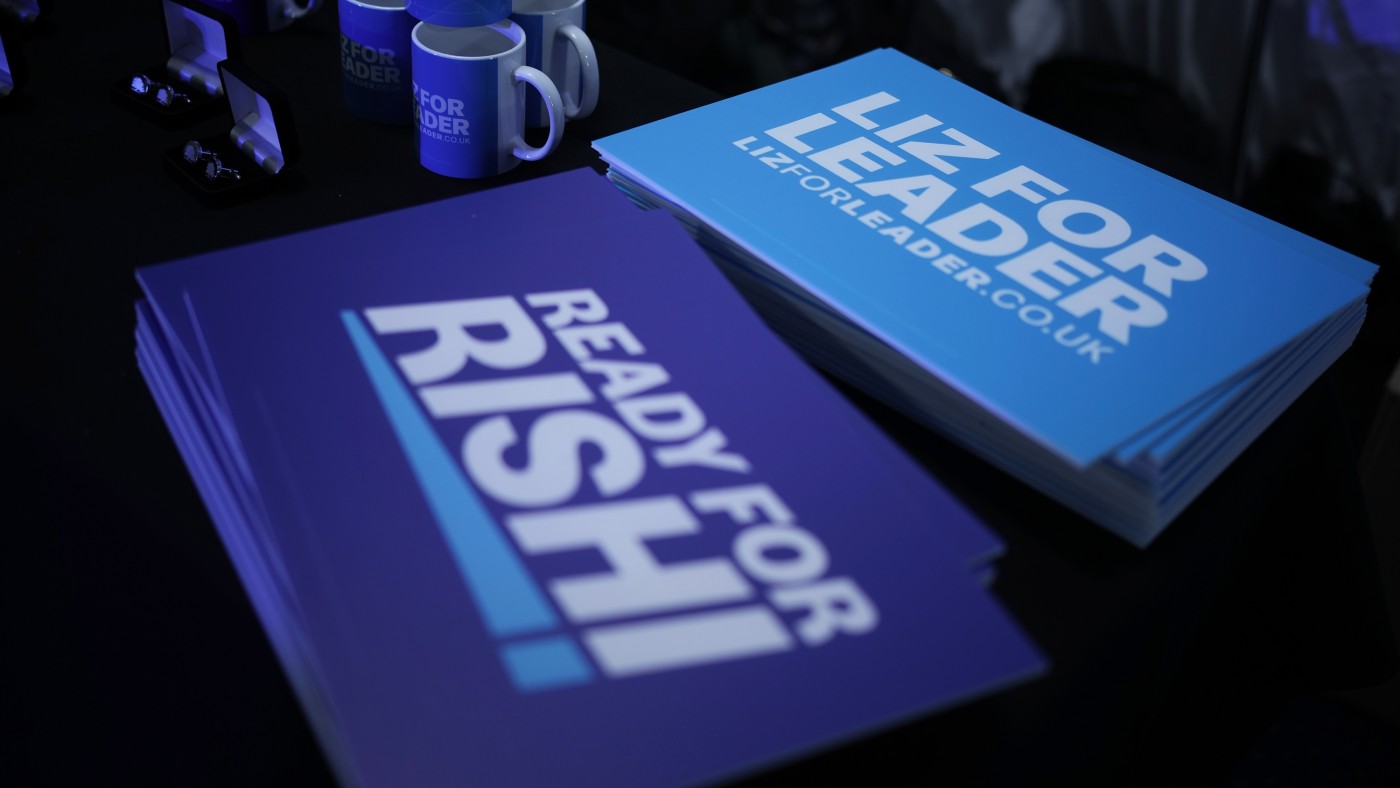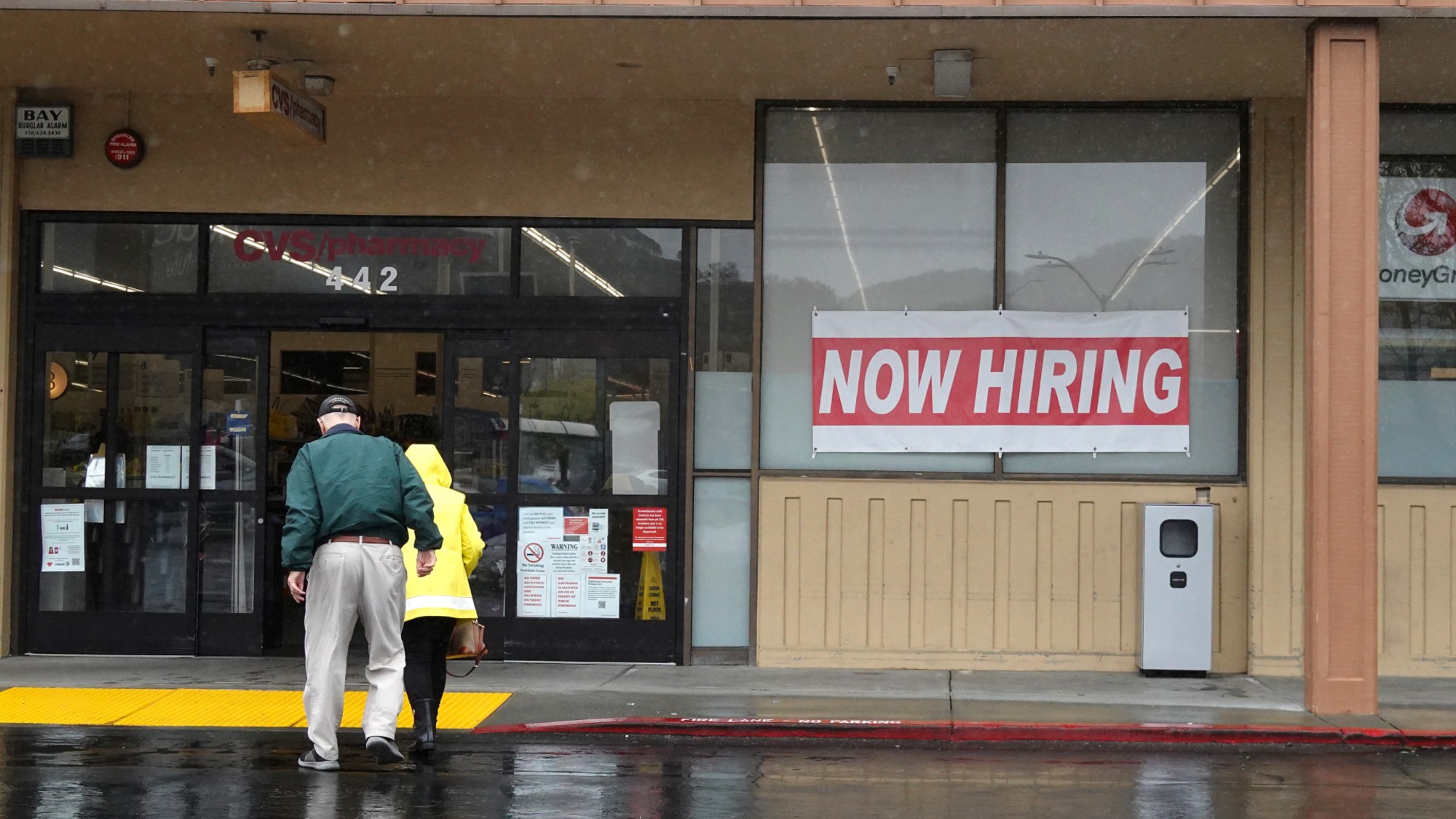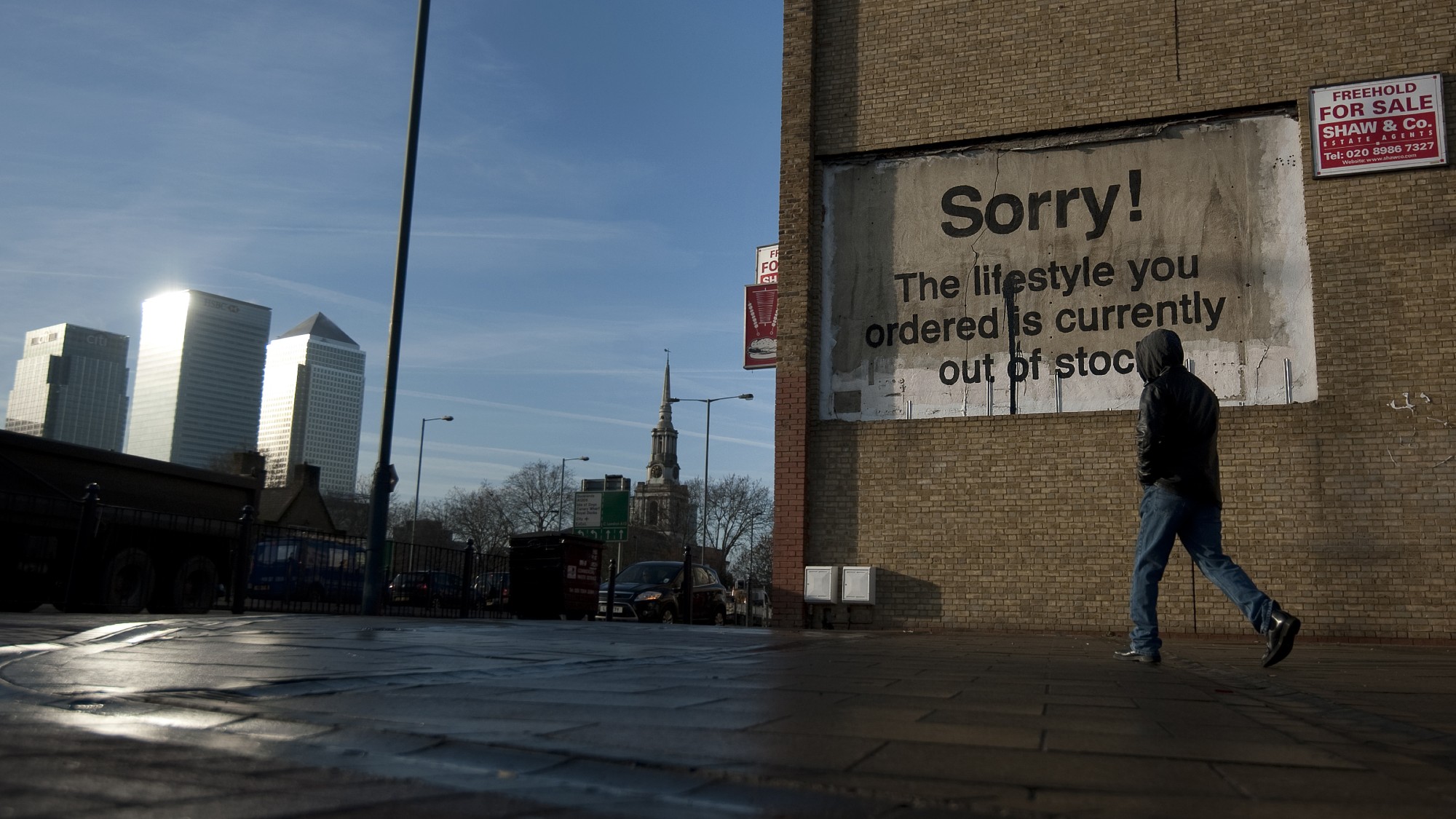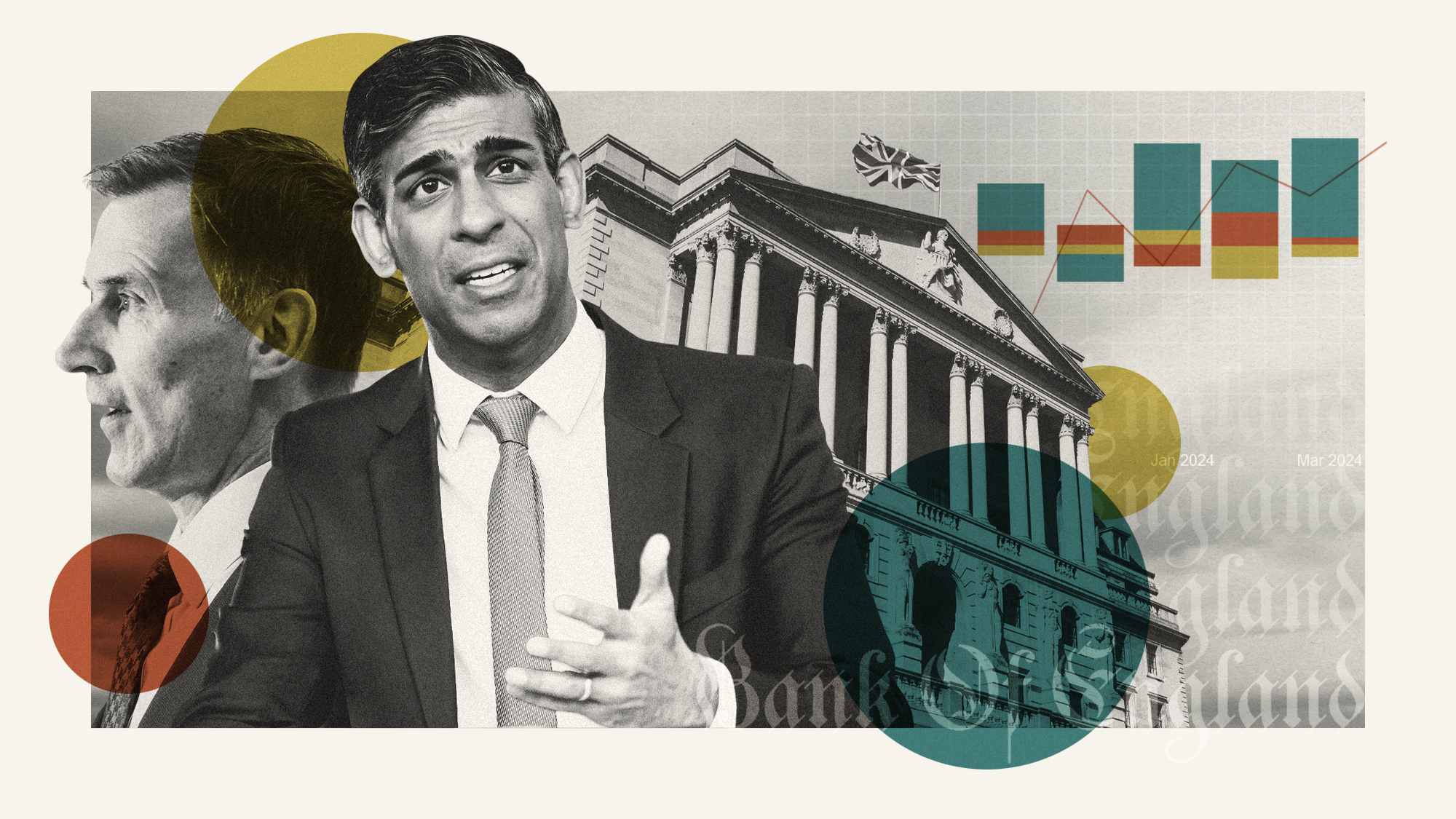Rishinomics vs. Trussonomics: the fiscal matters of the Tory leadership race
Sunak’s tax policy is under fire, but can the country afford a dose of Trussonomics?

A free daily email with the biggest news stories of the day – and the best features from TheWeek.com
You are now subscribed
Your newsletter sign-up was successful
What is “Trussonomics”? The question will be uppermost in the minds of 160,000 Conservative Party members as they decide whether to make Liz Truss or Rishi Sunak the next PM, said Oliver Shah in The Sunday Times. The popular narrative has ranged the Foreign Secretary and former chancellor at “opposite poles of economic policy” – Truss “the radical tax-cutter”, Sunak “the cautious fighter against inflation”. But, actually, “they aren’t so far apart on fiscal matters”. The centrepiece of Truss’s manifesto is £34bn of immediate tax cuts, paid for “within the existing fiscal envelope” (i.e. via the £30bn of “headroom” in the public finances identified by the OBR, plus additional borrowing if necessary). Sunak, who derides promises of unfunded tax cuts at a time of soaring inflation as “fairytale” economics, has promised to bring down taxes once he has “gripped” inflation. The real difference between them, then, is one of “timing and tone”.
If that’s the case, said Tom Rees in The Daily Telegraph, you can see why Truss is the bookies’ favourite. As recession warnings mount, “Rishinomics is coming under fire for being too complacent” about the huge task ahead – preserving growth and easing the cost-of-living crisis. And he has what Torsten Bell of the Resolution Foundation calls a “dog’s dinner” of a tax plan. Sunak, Bell points out, plans to cut income tax and freeze thresholds, while doing the opposite with national insurance. This will mean that “lower earners are disproportionately affected”. Sunak has raised taxes to the highest level in decades; international bodies like the OECD have warned against the UK’s “contractionary” position, and urged it to “consider slowing fiscal consolidation to support growth”.
Yet Liz Truss is “short of heavyweight support”, said The Guardian. Even her backers concede tax cuts could prove inflationary and would likely lead to higher interest rates – harming both consumers and public finances. It’s questionable whether the “threadbare” public purse could cope with Trussonomics, said Patrick Hosking in The Times. Government debt has hit 96.1% of GDP, and “the interest bill is rocketing, thanks to the huge amounts of inflation-linked gilts issued”. The interest cost this June was £19.4bn – 113% higher than in June 2021. “Against this backdrop”, Truss’ plans look “dangerously irresponsible”. She argues that tax cuts would boost growth and therefore “pay for themselves” in higher receipts – the seductive theory of the “Laffer curve”. This flies in the face of “financial orthodoxy”. It might be “catnip” to the Tory grassroots, but whether Trussonomics “can survive contact with the reality of the currency and gilt markets is another matter”.
The Week
Escape your echo chamber. Get the facts behind the news, plus analysis from multiple perspectives.

Sign up for The Week's Free Newsletters
From our morning news briefing to a weekly Good News Newsletter, get the best of The Week delivered directly to your inbox.
From our morning news briefing to a weekly Good News Newsletter, get the best of The Week delivered directly to your inbox.
A free daily email with the biggest news stories of the day – and the best features from TheWeek.com
-
 Crisis in Cuba: a ‘golden opportunity’ for Washington?
Crisis in Cuba: a ‘golden opportunity’ for Washington?Talking Point The Trump administration is applying the pressure, and with Latin America swinging to the right, Havana is becoming more ‘politically isolated’
-
 5 thoroughly redacted cartoons about Pam Bondi protecting predators
5 thoroughly redacted cartoons about Pam Bondi protecting predatorsCartoons Artists take on the real victim, types of protection, and more
-
 Palestine Action and the trouble with defining terrorism
Palestine Action and the trouble with defining terrorismIn the Spotlight The issues with proscribing the group ‘became apparent as soon as the police began putting it into practice’
-
 What is the job market's future after Trump's tariffs?
What is the job market's future after Trump's tariffs?Talking Points Economic analysts are split on what the tariffs could mean for employees
-
 Volkswagen on the ropes: a crisis of its own making
Volkswagen on the ropes: a crisis of its own makingTalking Point The EV revolution has 'left VW in the proverbial dust'
-
 The row over UK maternity pay
The row over UK maternity payTalking Points Tory leadership hopeful Kemi Badenoch implied that taxpayer-funded benefit was 'excessive' and called for 'greater responsibility'
-
 Post Office: still-troubled horizons
Post Office: still-troubled horizonsTalking Point Sub-postmasters continue to report issues with Horizon IT system behind 'one of the worst miscarriages of justice in British legal history'
-
 The UK's national debt: a terrifying warning
The UK's national debt: a terrifying warningTalking Points OBR's 'grim' report on Britain's fiscal outlook warns of skyrocketing spending, but 'projection' is not a 'forecast'
-
 Copper coins: are they doomed?
Copper coins: are they doomed?Talking Point Treasury says no new 1ps and 2ps needed due to declining use – but would we really miss them?
-
 Barcelona's Airbnb ban: a sign of things to come?
Barcelona's Airbnb ban: a sign of things to come?Talking Point Crackdown on short-term lets to combat unaffordable housing echoes similar moves elsewhere, but anti-tourism protests could prove self-defeating
-
 Is the UK economy returning to normal?
Is the UK economy returning to normal?Today's Big Question Tories claim UK has 'turned a corner' while Labour accuses government of 'gaslighting' public